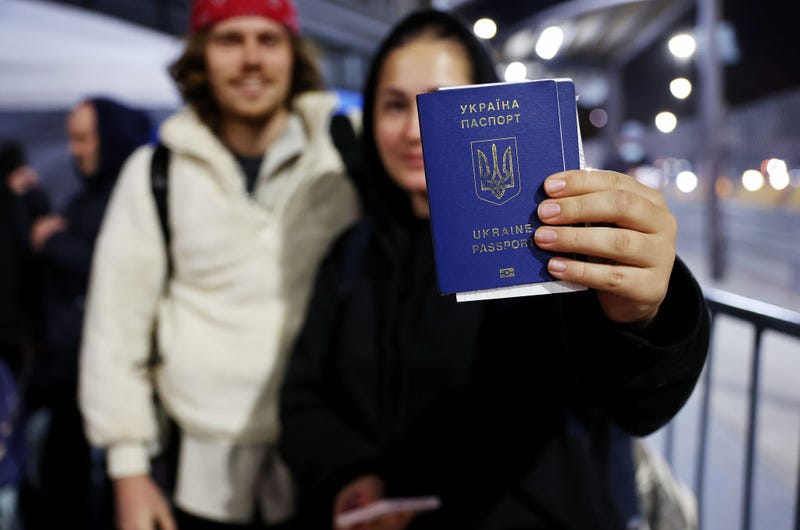
PHILADELPHIA (KYW Newsradio) — A Biden administration effort is making it easier for Ukrainian refugees fleeing Russia’s war to come to America, but legal experts say it could still be a while before they would be eligible to legally immigrate to the U.S.
The U.S. has pledged to take in 100,000 Ukrainian refugees, and about 15,000 have entered the country since the Feb. 24 invasion.
For weeks now, lawyers have been waiting for guidance on how to help their clients apply for temporary immigration status during wartime. The Uniting for Ukraine program officially took effect Monday, streamlining refugee applications for Ukrainians and others fleeing the fighting.
To qualify for admission to the U.S. under the new program, people must have been in Ukraine as of Feb. 11; have a sponsor, which could be family or an organization; meet vaccination and other public health requirements; and pass background checks. U.S.-based individuals and organizations can now apply to sponsor displaced Ukrainian citizens.
Typically, people would start applications in their home country, but that’s no longer possible because the U.S. pulled its diplomats from Ukraine. The State Department will expand resettlement operations in Eastern Europe under the new program to compensate.
Most of those admitted will receive two years of residence and authorization to work in the United States under what’s known as humanitarian parole. Those coming to the U.S. through the formal refugee process, including members of religious minority groups, will receive permanent legal residency.
However, Philadelphia-based immigration attorney Wendy Hess argues issues like understaffing and extensive security requirements could take months, at minimum, to get through all the necessary paperwork.
“When you have a terribly broken U.S. immigration system that scores of presidents, no matter what their political party, have ignored, how quickly can you rally the troops?” she asked.
For some professionals, there actually are different employment-based visas that will allow refugees to come to the United States temporarily.
“For instance, if the universities in our area wish to petition for somebody who has extraordinary talents in the arts or the sciences, they might be able to bring them in on what’s called an O-1 visa. If they are a physician, they might be able to be brought in on an H-1B visa. If they are artists or entertainers, they might be able to come in on an O or a P visa,” she explained.
Hess notes this method might only benefit a small portion of Ukrainians who so desperately need help right now.
She said American citizens can help Ukrainian refugees by reaching out to their elected officials: “Tell them that waiting nine months for employment authorization is not good enough.”


